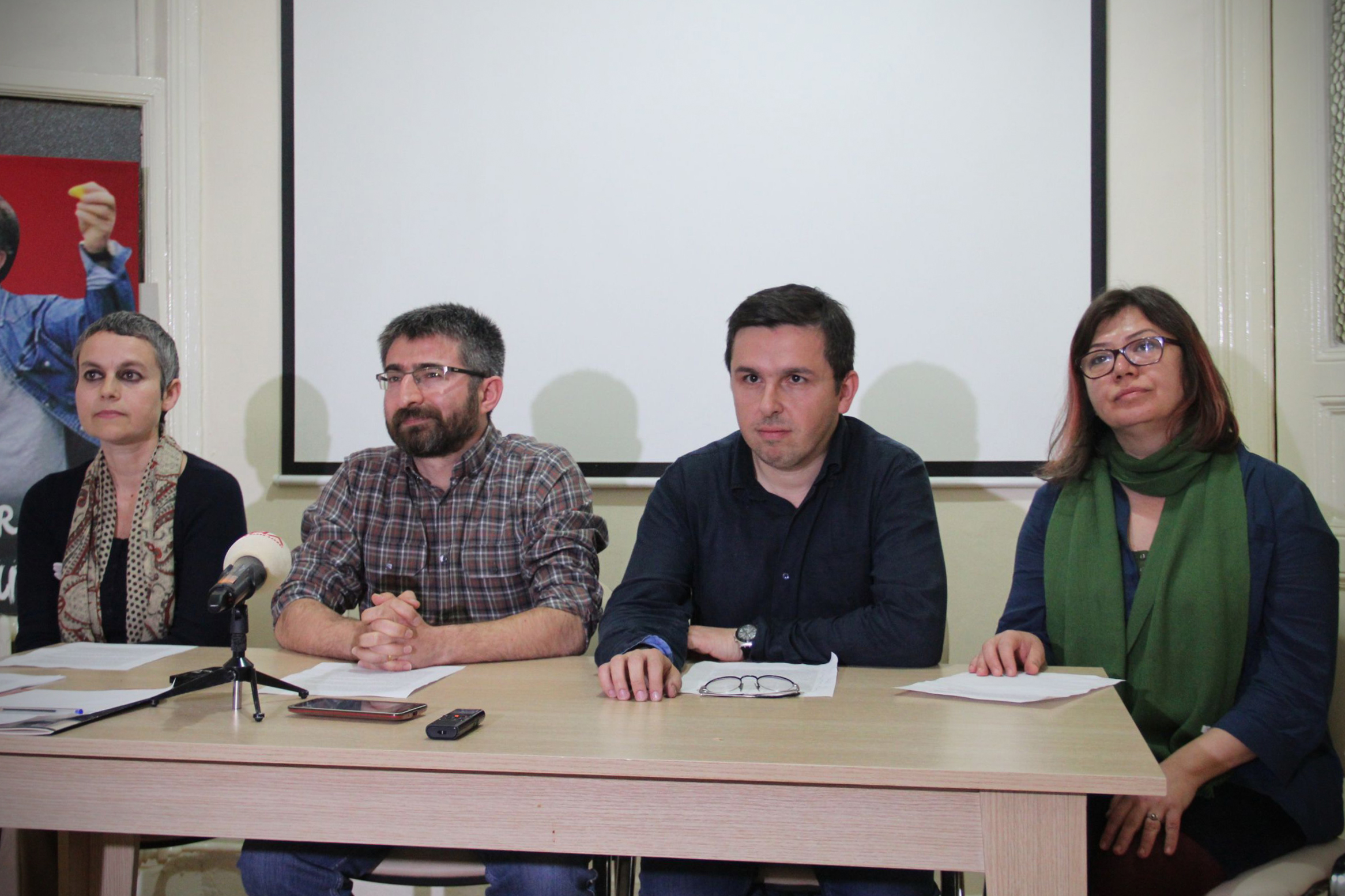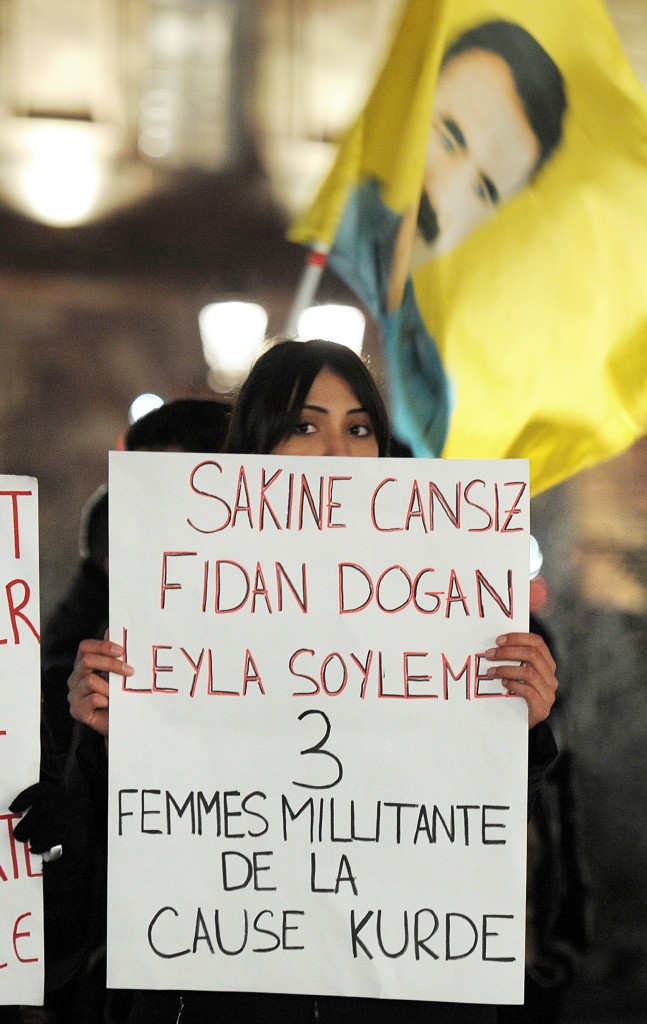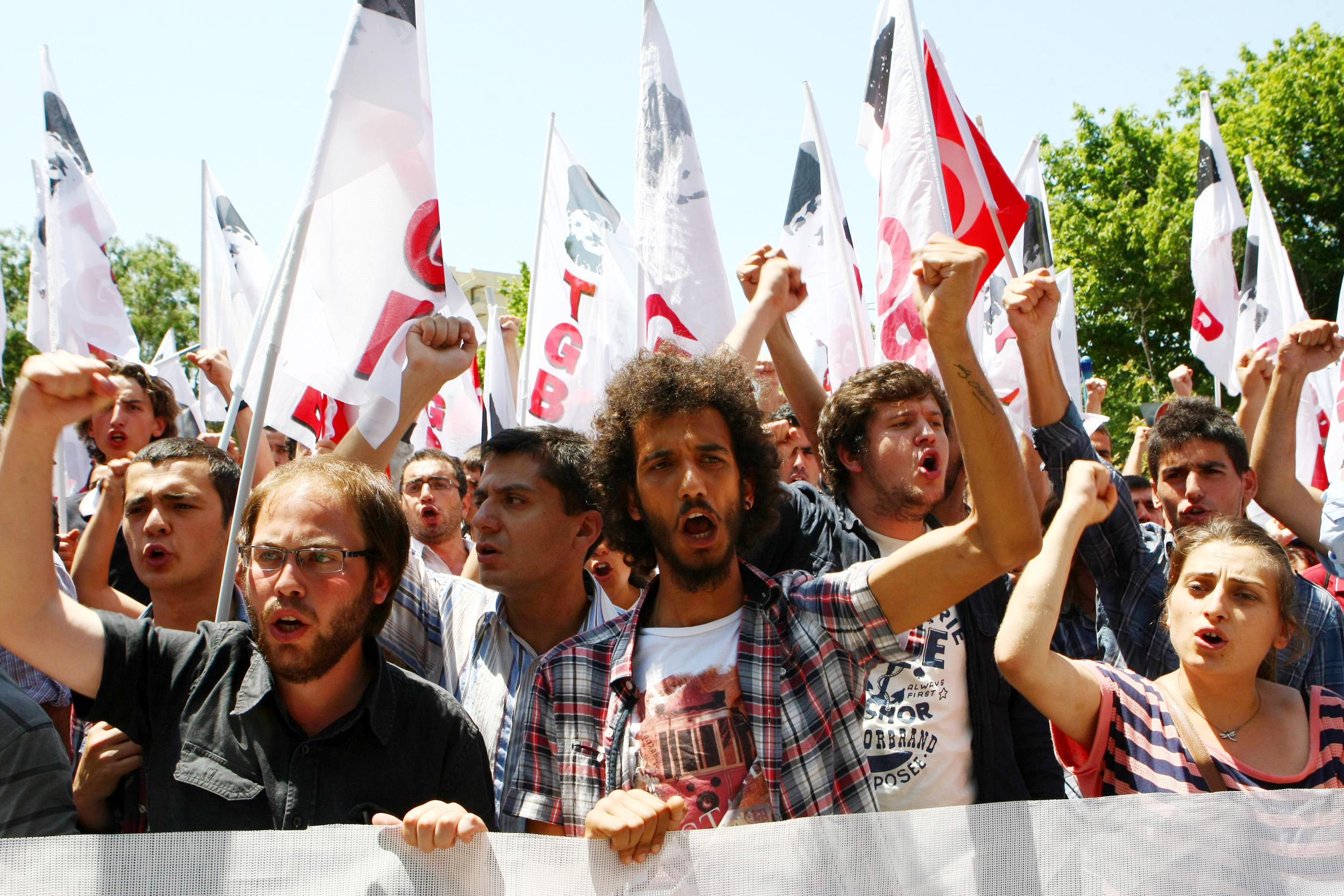
Esra Mungan, Muzaffer Kaya, Kıvanç Ersoy and Meral Camcı are academics currently held in pre-trial detention in Istanbul after they held a press conference on 10 March 2016.
Turkey has suffered from a series of horrendous attacks in recent months. The security challenges it faces are very real. Unfortunately, the rhetoric coming out of Ankara suggests that, under the umbrella of fighting terrorism, the most basic civil liberties are to be targeted.
Citizens from all walks of life, including journalists, scholars, lawyers, and thirteen year olds sharing stuff on facebook, have all been targeted by the Turkish authorities simply for expressing ideas that the government doesn’t like. Turkey’s current campaign against academics who signed a “peace petition” is emblematic of a much larger problem. It is time to take action. It is time to add your voice to those calling on Turkey to respect the most basic rights of freedom of expression.


